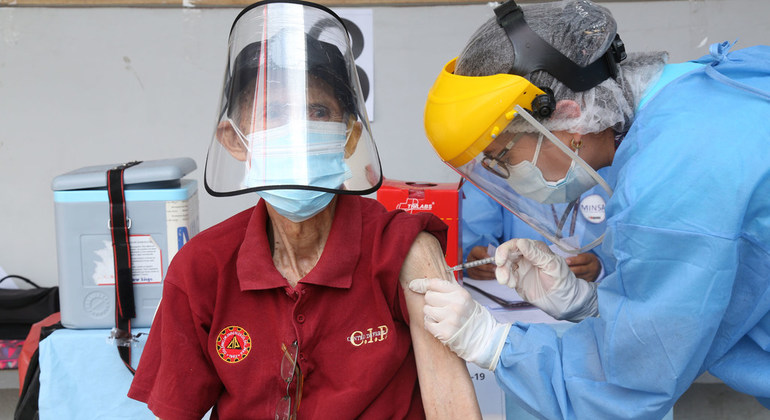ECOSOC is one of the six main organs of the UN, and the pandemic is unfolding during its 75th anniversary.
Reflecting on the past year, Mr. Akram recalled how the Council responded to the crisis, and climate and development challenges, including through drawing attention to the special needs of the world’s least developed nations.
He urged countries to build on convergence and consensus achieved to confront major tasks ahead, starting with ensuring everyone, everywhere, is protected against the virus.
“Universal and affordable access to COVID-19 vaccines is essential to defeat the virus and to revive global trade, investment and growth. We have agreed on what needs to be done. We must now do it,” he said.
Keep climate finance commitment
ECOSOC promotes collective action for a sustainable world.
The meeting was held one day after the conclusion of its annual High Level Political Forum (HLPF) to review progress towards achieving the Sustainable Development Goals (SDGs).
Developing countries will need $4.3 trillion to recover from the triple crises and to realize the 17 goals by 2030.
Mr. Akram welcomed plans to create $650 billion in Special Drawing Rights (SDRs), a type of reserve foreign asset developed by the International Monetary Fund (IMF), among other debt relief initiatives.
On climate change, he highlighted the critical need for developed countries to fulfill their commitment to provide $100 billion annually in climate finance.
“Scaled-up investment in sustainable infrastructure, an estimated requirement of $1 trillion per year, is essential also for the transition to a dynamic ‘green’ global economy,” he said, while also calling for action plans for job creation in sectors such as construction, renewable energy, transport and housing.
Fight hunger and poverty
The ECOSOC President urged the international community to combat rising poverty and hunger through measures that include social protection and relief programmes.
Greater access to advanced technologies and innovations, particularly digital technologies, is another priority, as they are vital to achieving the SDGs and climate goals.
Mr. Akram also stressed the need to mobilize the political will to address structural and systemic barriers to equitable growth and development, namely unequal financial, tax and trade regimes.



